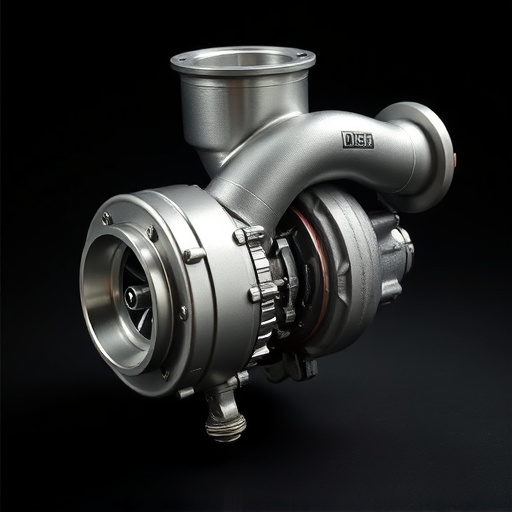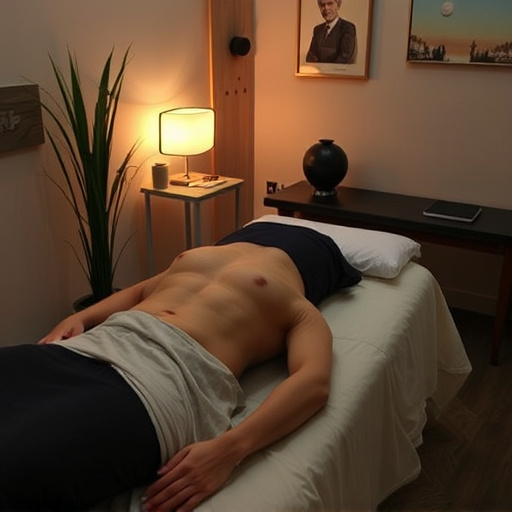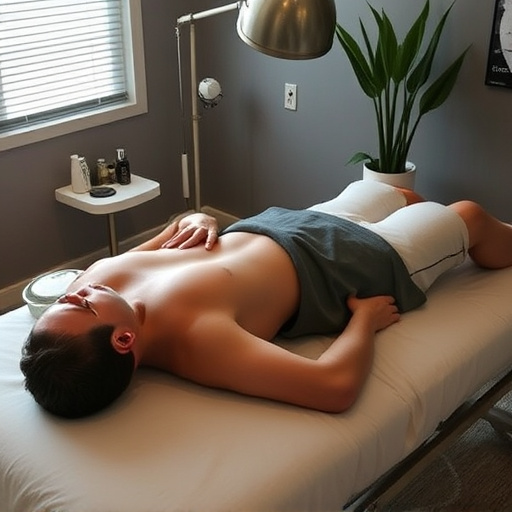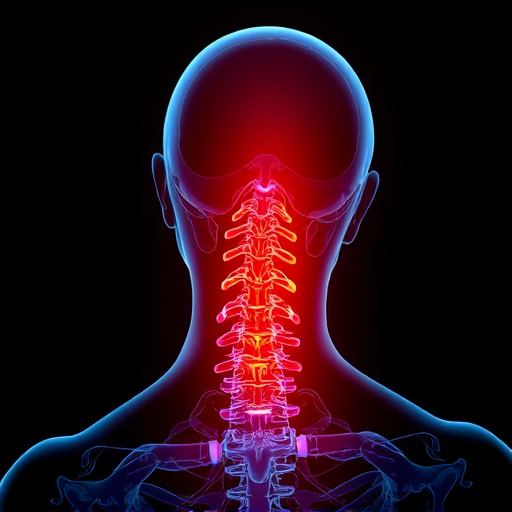A herniated disc, often in the lower back or neck, occurs when the inner nucleus pushes through a tear in its outer ring, irritating nerves and disrupting sleep. Treatment options like chiropractic care and shockwave therapy aim to relieve pain, improve mobility, and promote better sleep hygiene. Establishing a consistent daily routine, including fixed sleep times and a calming pre-sleep ritual, helps regulate the body's internal clock, facilitating deeper sleep and aiding in pain management. Improving sleep quality through activities like reading, deep breathing, or listening to music, along with using supportive mattresses and pillows, enhances healing and overall wellness. Chiropractic adjustments can also alleviate pain and improve sleep by reducing pressure on affected areas.
Dealing with a herniated disc can be painful, but disrupting sleep only exacerbates the issue. Understanding how herniated discs affect sleep is the first step towards recovery. This guide explores effective strategies to improve sleep during treatment, focusing on establishing a consistent routine and incorporating practices that enhance sleep quality. By following these tips, you can accelerate your recovery and find relief from both the injury and its impact on your rest.
- Understanding Herniated Discs and Sleep Disruption
- Creating a Routine for Optimal Rest During Treatment
- Tips to Enhance Sleep Quality and Accelerate Recovery
Understanding Herniated Discs and Sleep Disruption

A herniated disc occurs when the soft inner nucleus of a spinal disc pushes through a tear in its outer ring, potentially irritating nearby nerves and leading to pain. This condition can significantly impact sleep, especially if it’s located in the lower back or neck, as it might cause sciatica relief challenges and disrupt natural sleeping patterns. During herniated disc treatment, understanding these disruptions is crucial for developing strategies to improve sleep quality.
Sleep disruption related to herniated discs often manifests as pain, stiffness, and discomfort that can make it hard to find a comfortable position. This, in turn, leads to frequent waking during the night, disrupting natural sleep cycles. Both chiropractic care and shockwave therapy are popular herniated disc treatment options known for their potential to alleviate pain and improve mobility, thereby fostering better sleep hygiene. Effective management of these symptoms can significantly enhance one’s overall well-being and quality of life.
Creating a Routine for Optimal Rest During Treatment

Establishing a consistent routine can significantly enhance your rest and recovery during herniated disc treatment. Prioritize sleep by setting a fixed bedtime and wake-up time, even on weekends. This helps regulate your body’s internal clock, promoting deeper and more restorative sleep. Create a calming pre-sleep ritual to signal to your body that it’s time to wind down. This might include activities like reading a book, practicing light yoga or meditation, or taking a warm bath.
A structured routine also facilitates pain management, especially if you’re experiencing neck pain relief is part of your herniated disc treatment. By adhering to a regular sleep schedule, you can better control your body’s natural pain response. Additionally, maintaining a consistent daily routine supports overall auto accident recovery by ensuring your body receives the rest it needs to heal and rejuvenate, especially during non-invasive treatment options for herniated discs.
Tips to Enhance Sleep Quality and Accelerate Recovery

Improving sleep is a vital part of the herniated disc treatment process, as it accelerates healing and enhances overall wellness. To boost your sleep quality during this time, consider implementing some simple yet effective strategies. First, create a relaxing bedtime routine to signal to your body that it’s time to wind down. This can include activities like reading a book, practicing deep breathing exercises, or listening to calming music. Establishing a consistent sleep schedule is also crucial; aim for the same bedtime and wake-up time each day, even on weekends.
Additionally, optimizing your sleeping environment can significantly impact your rest. Make sure your mattress provides adequate support and comfort. Consider using pillows that promote proper spinal alignment. Regular sessions of gentle spinal adjustments or chiropractic care can also alleviate pain and improve sleep by reducing pressure on the affected area, allowing for a more peaceful slumber.
A good night’s sleep is vital for effective herniated disc treatment, accelerating recovery, and reducing pain. By implementing a structured routine, practicing relaxation techniques, and optimizing your bedroom environment, you can significantly improve sleep quality during this challenging time. Remember, consistent effort to enhance rest will contribute to a smoother journey towards healing.














